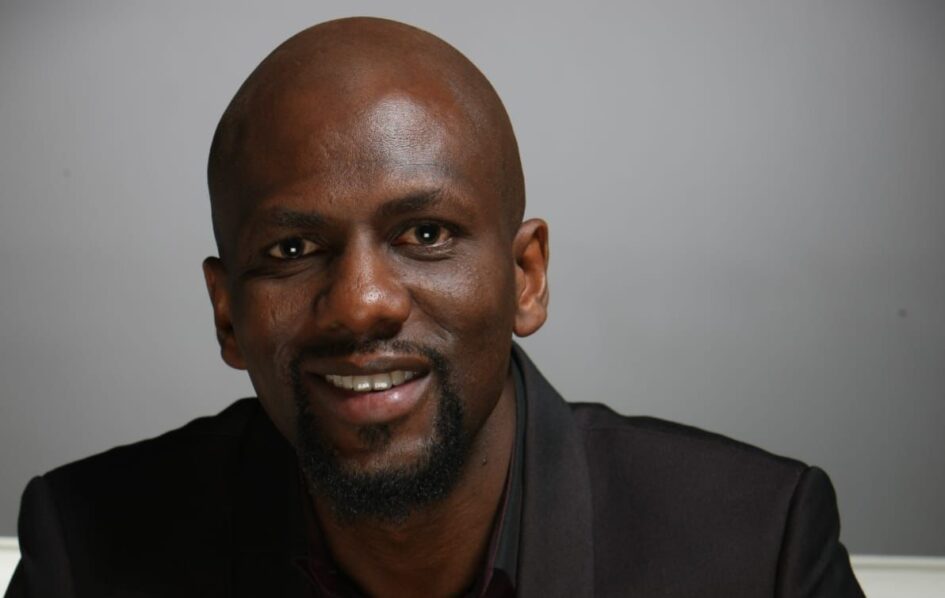
I am not interested in those varying views in this essay; indeed, the whole point of power is not about being liked, but about being undeniable.
That is why, given his undeniable cultural power as an Emir, it was no surprise to see a most interesting interview with SLS in the Financial Times famous Sunday edition.
In this edition, SLS treated FT Editor David Pilling to a delicious-sounding dinner at his palace cooked by two of his wives. Here, David Pilling engaged His Royal Highness on issues from corruption in NIgeria to poverty in Nigeria’s north.
I found a particular bit about polygamy striking. Here, an excerpt:
“I get a lot of comments from the west on polygamy. But let me give you a different perspective. In Britain today, you can have relationships with any number of women. You can have six partners. If they agree and you’re not forcing them, you are not committing any offence.
[related ids=”570491″]
But if you decided to marry them, you’d go to jail. I don’t understand that. If a society does not criminalise adultery, it has no business criminalising polygamy.”
However, the Emir is not a fan of polygamy for poor people. His reasoning?
“It’s a total misconception of Islamic law for people to think that you have the right to marry more than one wife and not be able to maintain them. It’s not a blank cheque. You can’t just produce children and leave them on the streets begging and out of school.”
When pushed on whether women should be able to have multiple husbands, he mentions the need for tracing paternity in the pre-DNA era, but accepts that in a DNA era such as we are that argument is weakened.
Religion, then, becomes the failsafe for this argument, before he then goes on to say that polygamy should not be practiced by people who are not wealthy.
The (de)merits of polygamy aside (that’s a whole other article), I think that particular back-and-forth is worth holding to the light for two reasons, one of which is that it clearly illustrates the nature of arguments on social change.
First, an argument is put forth noting inequality (girls need to equal access to education, for example). The counterargument begins with an attempt at logic (girls cannot go to school because boys need education more to make money and take care of their families).
In the face of a better argument (girls can and do contribute financially and otherwise to their families and also deserve a shot at a better future) the argument falls back on religion (boys will grow to be men, who are the rightful heads of their homes!).
This religion-based argument then endures for generations, albeit chipped away at household and even community level when the reality of its fallacy is made clear day after day.
As a man who has spoken against many cultural issues facing Nigeria’s north like child marriage and almajiri system, SLS is most certainly aware that God-made laws ultimately take the shapes of the human hands that uphold it.
That brings me to a second point that struck me: the role of privilege in the demand for social change. Like a lot of other things, people’s philosophies often change colour once held up to light, refracted as they are by the glare of their privilege and position.
A lot of us want change only insofar as it does not threaten our position. This need to ensure that our privilege not be threatened also leads us to speak untruths disguised as celestial law.
To respond directly to SLS’ point, in a pre-DNA era, a woman could still have children with another man, with her husband none the wiser.
To use SLS’ own words, a woman could today have six different partners with all men agreeing, but she cannot marry all of them. I do not understand that, either.
The need for a heavenly-ordained reason why men demand accuracy of the paternity of their children disguises the simple fact that men do not want the ego bruise of having to share their wives with anyone else.
Plainly spoken truths, then, are never the terms on which we argue; we much prefer to don the true intentions of cultural and social laws in heavenly garb.
To be sure, SLS is far from the only self-proclaimed progressive man guilty of cognitive dissonance.
The point, though, is not to shame the Emir for hypocrisy, but rather to challenge proponents of change to willingly identify the ways in which we too uphold the society we condemn and advocate for freedoms that come at a cost for us as well.
If SLS wants to truly make change in his society, he should speak of these cultural issues for what they really are, starting with his own biases.
is a most interesting man. That is true whether or not you find him arrogant or intelligent; a truth-teller who was saved from a president’s wrath, or an ethnic jingoist who covers his thievery in sanctimony and finely-clipped English.
I am not interested in those varying views in this essay; indeed, the whole point of power is not about being liked, but about being undeniable.
That is why, given his undeniable cultural power as an Emir, it was no surprise to see a most interesting interview with SLS in the Financial Times famous Sunday edition.
In this edition, SLS treated FT Editor David Pilling to a delicious-sounding dinner at his palace cooked by two of his wives.
Here, David Pilling engaged His Royal Highness on issues from corruption in NIgeria to poverty in Nigeria’s north. I found a particular bit about polygamy striking. Here, an excerpt:
“I get a lot of comments from the west on polygamy. But let me give you a different perspective. In Britain today, you can have relationships with any number of women. You can have six partners.
If they agree and you’re not forcing them, you are not committing any offence. But if you decided to marry them, you’d go to jail. I don’t understand that. If a society does not criminalise adultery, it has no business criminalising polygamy.”
However, the Emir is not a fan of polygamy for poor people. His reasoning?
“It’s a total misconception of Islamic law for people to think that you have the right to marry more than one wife and not be able to maintain them. It’s not a blank cheque. You can’t just produce children and leave them on the streets begging and out of school.”
When pushed on whether women should be able to have multiple husbands, he mentions the need for tracing paternity in the pre-DNA era, but accepts that in a DNA era such as we are that argument is weakened.
Religion, then, becomes the failsafe for this argument, before he then goes on to say that polygamy should not be practiced by people who are not wealthy.
The (de)merits of polygamy aside (that’s a whole other article), I think that particular back-and-forth is worth holding to the light for two reasons, one of which is that it clearly illustrates the nature of arguments on social change.
First, an argument is put forth noting inequality (girls need to equal access to education, for example). The counterargument begins with an attempt at logic (girls cannot go to school because boys need education more to make money and take care of their families).
In the face of a better argument (girls can and do contribute financially and otherwise to their families and also deserve a shot at a better future) the argument falls back on religion (boys will grow to be men, who are the rightful heads of their homes!).
This religion-based argument then endures for generations, albeit chipped away at household and even community level when the reality of its fallacy is made clear day after day.
As a man who has spoken against many cultural issues facing Nigeria’s north like child marriage and almajiri system, SLS is most certainly aware that God-made laws ultimately take the shapes of the human hands that uphold it.
That brings me to a second point that struck me: the role of privilege in the demand for social change. Like a lot of other things, people’s philosophies often change colour once held up to light, refracted as they are by the glare of their privilege and position.
A lot of us want change only insofar as it does not threaten our position. This need to ensure that our privilege not be threatened also leads us to speak untruths disguised as celestial law.
To respond directly to SLS’ point, in a pre-DNA era, a woman could still have children with another man, with her husband none the wiser. To use SLS’ own words, a woman could today have six different partners with all men agreeing, but she cannot marry all of them. I do not understand that, either.
The need for a heavenly-ordained reason why men demand accuracy of the paternity of their children disguises the simple fact that men do not want the ego bruise of having to share their wives with anyone else.
Plainly spoken truths, then, are never the terms on which we argue; we much prefer to don the true intentions of cultural and social laws in heavenly garb.
To be sure, SLS is far from the only self-proclaimed progressive man guilty of cognitive dissonance.
The point, though, is not to shame the Emir for hypocrisy, but rather to challenge proponents of change to willingly identify the ways in which we too uphold the society we condemn and advocate for freedoms that come at a cost for us as well.
If SLS wants to truly make change in his society, he should speak of these cultural issues for what they really are, starting with his own biases.
[ad unit=2]






